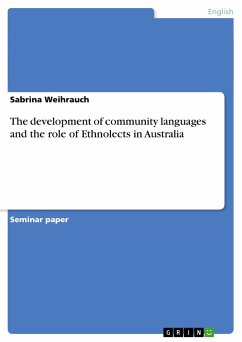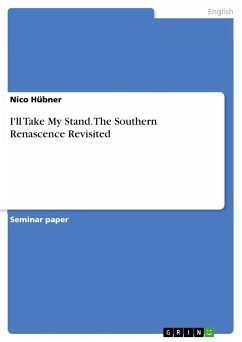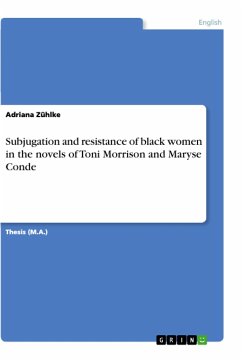
African American English and White Southern English - segregational factors in the development of a dialect

PAYBACK Punkte
0 °P sammeln!
Seminar paper from the year 2005 in the subject American Studies - Linguistics, grade: 1,7, University of Wuppertal, course: African American Culture as Resistance, language: English, abstract: In 1619 the first Black People were violently taken to Virginia, United States. Many more Blacks were to follow and hence had to work as slaves on the plantations in the south, fueling the trade of an emerging economic power. Families and friends were separated and people from different regions who spoke different African dialects were grouped together. This was to make sure that no communication in the...
Seminar paper from the year 2005 in the subject American Studies - Linguistics, grade: 1,7, University of Wuppertal, course: African American Culture as Resistance, language: English, abstract: In 1619 the first Black People were violently taken to Virginia, United States. Many more Blacks were to follow and hence had to work as slaves on the plantations in the south, fueling the trade of an emerging economic power. Families and friends were separated and people from different regions who spoke different African dialects were grouped together. This was to make sure that no communication in their respective native languages would take place in order to prevent mutinies. Thus the Africans had to learn the language of their new surroundings, namely English. Today the English of the Blacks in America is distinguishable as African American Vernacular English (AAVE). AAVE and American White Southern English (AWSE) were very similar in colonial times, and according to Feagin1 AWSE stillhas features of AAVE, such as the non-rhoticism and falsetto pitch2, which is supposed to add to the apparent musicality of both AAVE and AWSE today. Many commonalities can be attributed to the coexistence of the two cultures for almost 200 years, while many differences are claimed to be due to segregation. Crystal claims that first forms of Pidgin English spoken by Africans already emerged during the journey on the slave ships, where communication was also made difficult due to the grouping of different dialects in order to prevent mutiny. The slave traders who often spoken English had already shaped the new pidgin languages on the ships and helped shape a creole that was to be established in the Carribean colonies as well southern US colonies in the 17th century.













